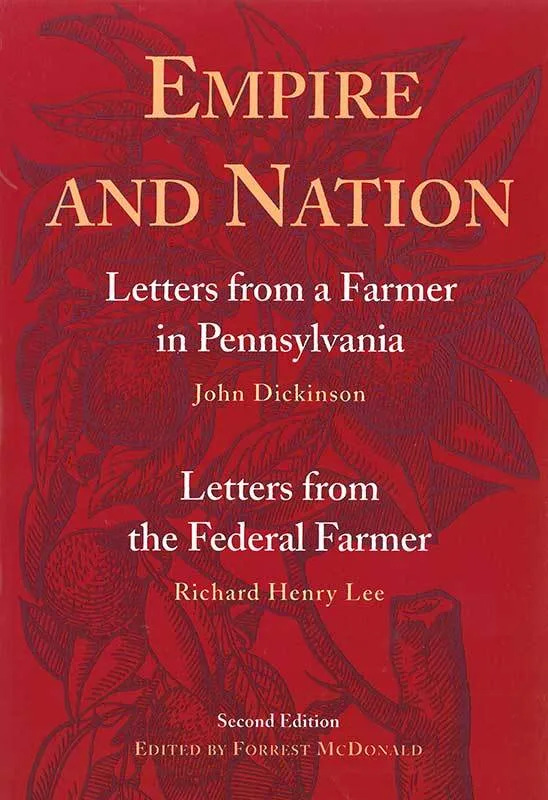Maybe it’s just me, but when I think of the American colonies I rarely remember the intentional economic relationship between them and the mother country. The former provided raw materials, the latter manufactured things with them, and the former had to buy most manufactures from the latter. That became a huge problem tackled in Letters from a Farmer in Pennsylvania, a series of missives from John Dickinson that I noted a few weeks back was on my America at 250 reading list. Dickinson’s topic—what’s a duty versus a tax and who can impose it?—is almost as important today as was when he was writing in 1767.
Dickinson’s concern is basically this: Parliament had passed the Revenue Act, which imposed duties on glass, paper, and a few other major goods. The intent was to raise money from the colonies, which gets to the crux of Dickinson’s question: Is the duty a tariff or a tax, and on what grounds could Parliament impose one or the other?
Dickinson argues that Parliament could impose duties on goods as part of the British imperial economy. Basically, to keep one part of the empire from benefiting too greatly at the expense of another. That was within Parliament’s purview as the government of the entire empire. But it could not impose duties on the colonies to raise money. That would be a tax, which Parliament constitutionally had no authority to impose.
While much is made about “taxation without representation” as the crux of the Revolution, Dickinson argues that while the colonies had no representation in Parliament, even if they did Parliament would have no right to tax them. A tax—taking people’s property—had to be accepted voluntarily by the people or their representatives, and thus could only be levied constitutionally by the colonies’ own legislatures. He quotes the New York resolves against the act, which among other provisions said that colonists were not, and “from their local circumstances” could not be, represented in Parliament, and that only their own legislatures could tax them to provide “supplies to the crown” which were “free gifts of the people.”
It seems it would not have been sufficient to have some representatives in Parliament, which is what I long thought would have satisfied those lamenting lack of representation. The representation, it appears, needed to be in a body representing just the colonists.
What I have also often overlooked is how difficult duties on goods from the mother country could be—how they were de facto unavoidable. British law prohibited the colonies from manufacturing many products and required that they purchase them from England. If colonists chose to boycott taxed goods from England such as paper they had no ready options to source the goods elsewhere, and could be outright prohibited from doing so. Dickinson laments that a revenue-raising duty on goods that the mother country requires the colonists to buy from her renders liberty “a sound and nothing else.”
This leads to something that I regret I hadn’t thought more about. I occasionally crack a joke on X about “infant industries” when I see another Trump tariff report. This utterly hilarious and never tiresome quip is a reference to Alexander Hamilton’s “Report on Manufactures,” which laid out a system of duties and subsidies intended to blunt foreign competition and encourage American manufacturing. I always thought it reeked of standard, efficiency-destroying, average-consumer-ignoring, protectionism. But in the context of brand-new America, it made far more sense because the British government had for so long artificially restrained American manufactures.
In other words, the call for government intervention was begotten by the need to correct government intervention. If only government today would learn that lesson and stop intervening to “help.”


